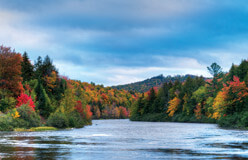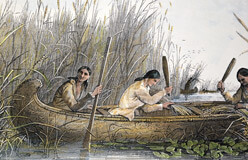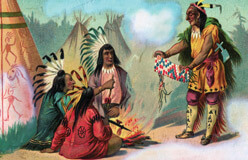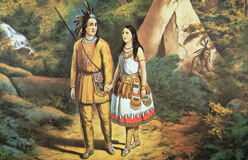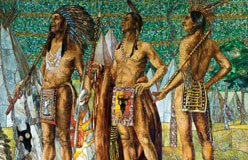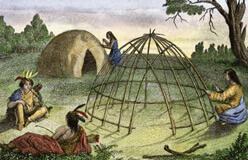As their ships approached the coast of Carolina, early English settlers detected enchanting smells. One of them wrote that it felt as if they were in a delicate garden.
Even as far as several miles out at sea, the eastern woodlands perfumed the air. These dense forests, which stretched from the Atlantic coast as far west as the Mississippi River, and from Canada in the north to the Gulf of Mexico in the south, provided habitat for a huge diversity of animals. Fish were abundant in thousands of miles of streams, rivers, ponds, and lakes.
The American Indians who lived there enjoyed nature’s bounty in many ways. They fished and hunted and gathered wild foods in the forests. Those who lived near rivers settled in villages, where they cleared plots so they could garden. Those who lived near the ocean harvested seafood, such as clams and oysters, and hunger or famine were hardly ever an issue.
The forests provided much more than food. Trees supplied not only firewood but also wood and bark for building houses, weapons, tools, and canoes. The eastern woodlands were undeniably a sweet land of plenty.
